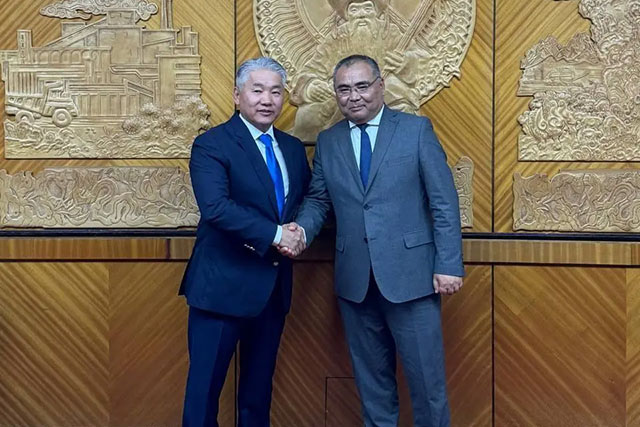
Uzbekistan and Mongolia Expand Cooperation in the Agricultural Sector
Uzbekistan and Mongolia Expand Cooperation in the Agricultural Sector
Tashkent, Uzbekistan (UzDaily.com) — As part of an official visit to Mongolia, the Minister of Agriculture of the Republic of Uzbekistan, Ibrokhim Abdurakhmonov, held talks with Jadamaba Enkhbayar, Minister of Food, Agriculture and Light Industry of Mongolia. The meeting took place in a warm and constructive atmosphere.
The two sides discussed the current state and future prospects of bilateral cooperation in agriculture, focusing on scientific research, plant and livestock breeding, personnel training, and the introduction of modern agro-technologies. Minister Abdurakhmonov highlighted the positive outcomes of ongoing livestock and crop farming projects. Notably, more than 7,000 “Bayad” sheep were imported from Mongolia to Uzbekistan and successfully adapted to local conditions, increasing the population to over 13,500.
As part of joint initiatives, drought-resistant forage crop seeds were also imported and are currently being tested on natural pastures in the Navoi region. This is considered an important step toward developing long-term breeding and selection programs.
Special attention was given to professional exchanges. In the near future, 50 Uzbek students will begin studies at Mongolian universities, while 10 Mongolian professors will undergo internships in Samarkand. This academic exchange aims to strengthen scientific ties and foster mobility between the two countries.
One of the key topics discussed was the effective use of irrigated land in Mongolia, which currently accounts for only 1% of all agricultural areas. Given Uzbekistan’s extensive experience in irrigation, the sides agreed on the provision of US$25,000 worth of technological support for the implementation of water-saving systems on a pilot plot of no less than 10 hectares. A visit of Mongolian specialists to Uzbekistan is also planned for hands-on study of local irrigation methods.
Uzbekistan will additionally send test batches of 15 varieties of vegetables, melons, potatoes, and grains to Mongolia. If field trials yield positive results, export volumes may increase up to US$200,000. Under the "Uzbekistan–Mongolia Friendship Garden" initiative, 10,000 frost-resistant fruit and berry seedlings will be delivered for planting on a 5-hectare plot.
The parties also discussed developing a logistics corridor linking Mongolia, China, Kyrgyzstan, and Uzbekistan, through which the future supply of 100,000 sheep and goats is planned.
Cooperation within the framework of Uzbekistan's “Green Space” initiative and Mongolia’s “One Billion Trees by 2030” campaign was another focus. Both sides expressed their intent to join efforts to promote environmental recovery and sustainable land use.
At the conclusion of the meeting, both ministers reaffirmed their mutual interest in deepening cooperation, agreed on concrete steps to implement promising joint projects, and expressed readiness to elevate the partnership to a new level focused on practical outcomes.